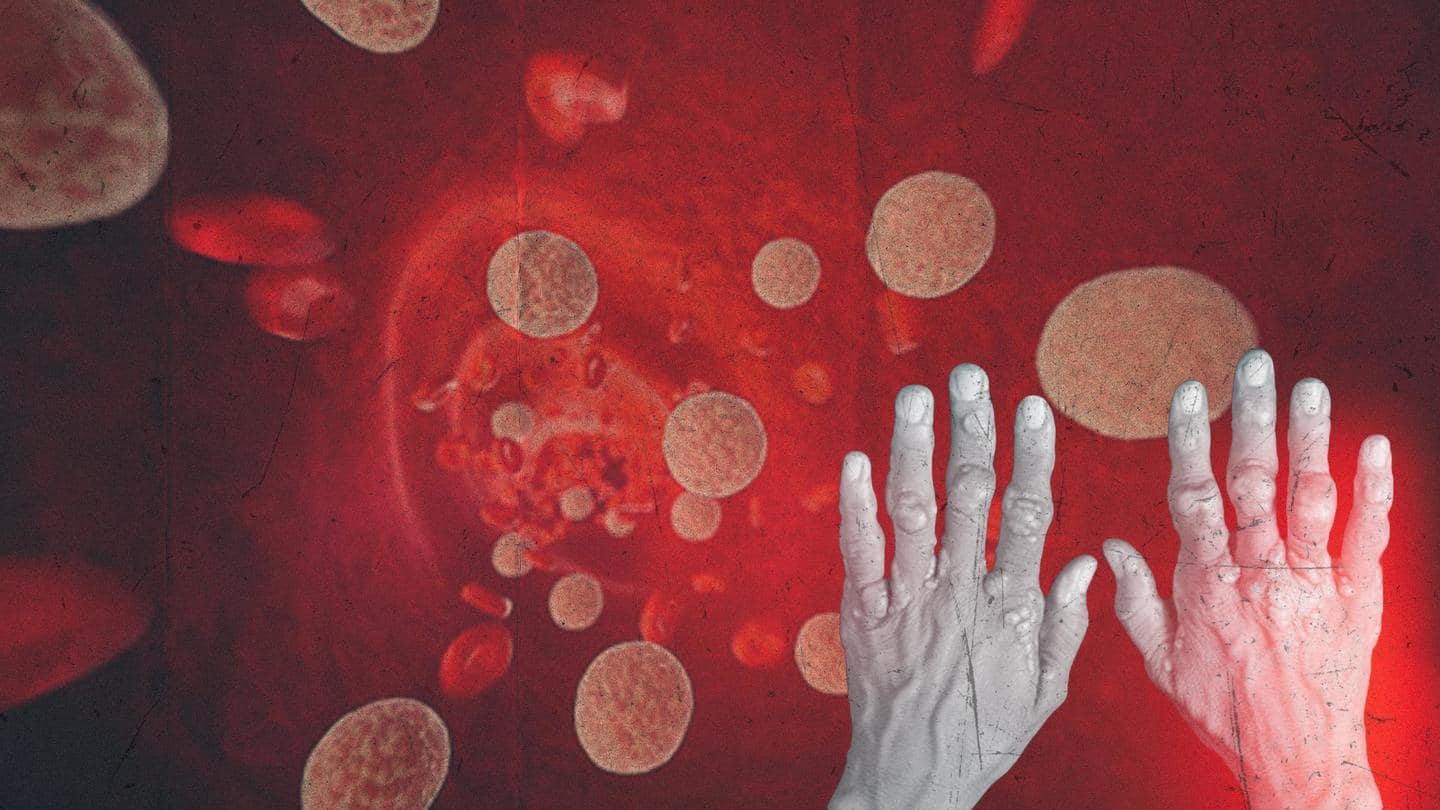
All you need to know about Hypercholesterolemia
What's the story
Hypercholesterolemia refers to a high cholesterol level in the blood which is usually caused by a sedentary lifestyle, being overweight or a gene alteration inherited from a parent.
Too much cholesterol can cause blockage of blood vessels which can lead to a stroke or heart problems.
However, a healthy lifestyle with regular exercise and a balanced diet can help manage your cholesterol levels.
Context
Here's what our expert says
Hypercholesterolemia is a medical condition where the levels of bad cholesterol in blood are very high. It can be diagnosed in both children and adults.
Excess cholesterol has a tendency to get deposited in blood vessels leading to a reduction in the caliber of the affected vessels.
This results in complications like heart attack, stroke, and reduced blood flow to limbs & other organs.
Causes
Causes of hypercholesterolemia
High consumption of foods rich in trans fat, saturated fats, and cholesterol can lead to obesity.
Obesity can, in turn, cause hypercholesterolemia and various cardiovascular diseases.
Smoking, hyperthyroidism, and diabetes can also increase the risk of developing high cholesterol.
Being under a lot of stress, lack of physical exercise, and alcohol consumption can also raise your cholesterol levels.
Symptoms
Symptoms of the condition
Hypercholesterolemia does not have any symptoms as such and can only be detected through a blood test.
However, if not detected early, high cholesterol can lead to the formation of plaque in your arteries and can cause emergency events like a stroke or a heart attack.
Total blood cholesterol above 200 milligrams per deciliter is considered high blood cholesterol and requires a doctor's attention.
Risk factors
Risk factors associated with hypercholesterolemia
High cholesterol can narrow your arteries over time and cause atherosclerosis, a condition that can limit the blood flow through your arteries and result in dangerous blood clots.
This serious condition can lead to life-threatening complications like chest pain, high blood pressure, chronic kidney disease, and peripheral vascular disease.
It can also create bile imbalance which can eventually increase the risk of developing gallstones.
Treatment
Treatment and prevention
Doctors can prescribe you certain medications for the condition but the best way to control it is by making healthy lifestyle changes.
Eat a heart-healthy diet that includes fish, fruits, vegetables, walnuts, and almonds, and avoid red meat, processed foods, sodium, and sugar-loaded food items.
Do at least 150 minutes of moderate-intensity aerobic exercise like brisk walking, swimming, bicycling, etc. every week.